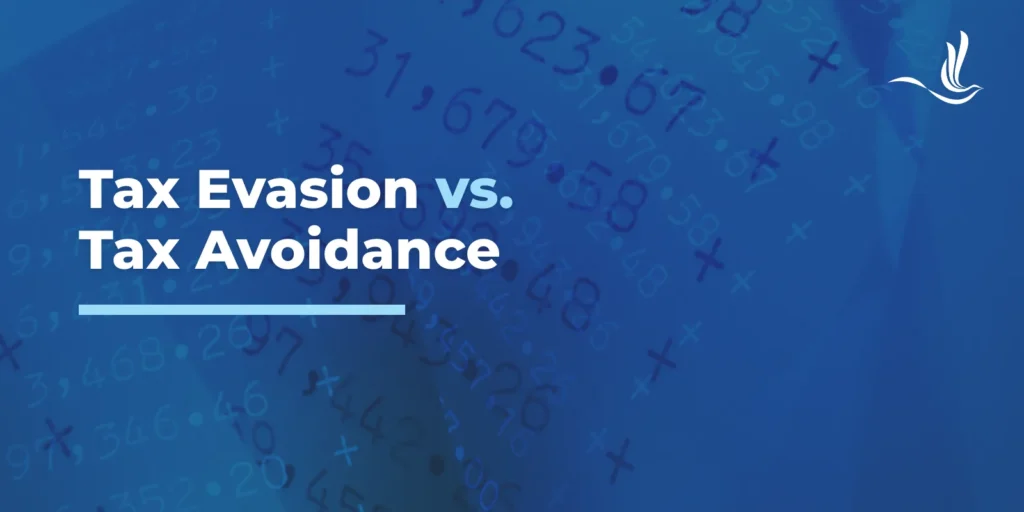Taxation is essential for funding public services and infrastructure. However, compliance with tax regulations varies, leading to the practices of tax evasion and tax avoidance. These terms, often confused, represent two different behaviors. This article goes into the specifics of tax evasion and tax avoidance, illustrated with specific examples to clarify their differences and implications.
What is Tax Evasion?
Tax evasion is the illegal act of deliberately misrepresenting or concealing information to reduce tax liability. It involves fraudulent activities such as underreporting income, inflating deductions, hiding money in offshore accounts, and failing to file tax returns. Tax evasion is a criminal offense, subject to severe penalties, including fines and imprisonment.
Examples: Underreporting Income
- A freelance graphic designer earns $100,000 but reports only $50,000 on their tax return, thus evading taxes on the unreported $50,000.
- A restaurant owner keeps a portion of their cash sales off the books, not reporting this income to tax authorities.
Examples: Inflating Expenses
- A business owner claims personal expenses, such as a family vacation, as business travel expenses to reduce taxable income.
- An individual inflates the value of charitable donations, claiming deductions for more than they actually donated.
Examples: Offshore Accounts
- A wealthy individual transfers millions to a secret offshore bank account in a tax haven, not declaring the interest earned on this account to their home country’s tax authorities.
- A corporation shifts profits to a subsidiary in a low-tax jurisdiction, falsely reporting reduced profits in the higher-tax country.
Examples: Non-filing
- An individual who owes taxes simply does not file a tax return, hoping to avoid detection and payment.
- A small business owner does not file tax returns for several years, despite having significant income that requires reporting.
What is Tax Avoidance?
Tax avoidance involves legally minimizing tax liability through strategic planning and exploiting loopholes in the tax code. While within the bounds of the law, tax avoidance often raises ethical concerns. Governments frequently adjust tax laws to close loopholes and curb aggressive tax avoidance.
Examples: Utilizing Tax Deductions
- A homeowner takes advantage of mortgage interest deductions to reduce taxable income.
- A small business claims all allowable business expenses, such as office supplies, equipment, and advertising costs, to lower taxable income.
Examples: Income Shifting
- A high-income earner gifts part of their income to a family member in a lower tax bracket, thus reducing the overall family tax burden.
- A business owner pays family members salaries for minimal work, shifting income to those in lower tax brackets.
Example: Tax Deferrals
- A business defers recognizing revenue until the next fiscal year to delay tax payments.
- An investor contributes to a retirement account, deferring taxes on the income until withdrawal in retirement when they might be in a lower tax bracket.
Examples: Setting Up Trusts
- An individual sets up a trust to distribute assets to beneficiaries in a tax-efficient manner, reducing estate tax liabilities.
- Wealthy individuals use grantor retained annuity trusts (GRATs) to transfer appreciating assets to heirs with minimal tax implications.
Key Differences Between Tax Evasion and Tax Avoidance
The major difference between tax evasion and tax avoidance is the legality of each. Tax avoidance is completely legal but is sometimes seen as morally questionable. Tax evasion, on the other hand, is illegal and fraudulent. Other differences lie in the intent and consequences. While both tax avoidance and tax evasion require strategic planning, tax evasion comes with intentional deception or concealment. That said, it also comes with heavy consequences, including criminal charges, heft fines, and sometimes imprisonment. Tax avoidance can sometimes lead to ax audits and even potential changes in legislation to close certain tax loopholes.
Tax Help for Those Dealing with the IRS
Understanding the distinction between tax evasion and tax avoidance is crucial for taxpayers and policymakers. While tax evasion is a criminal act with severe consequences, tax avoidance, though legal, raises ethical questions and can undermine the equity of the tax system. The IRS is increasing enforcement, which could mean higher potential for being audited. Optima Tax Relief has a team of dedicated and experienced tax professionals with proven track records of success.
If You Need Tax Help, Contact Us Today for a Free Consultation
Publisher: Source link











